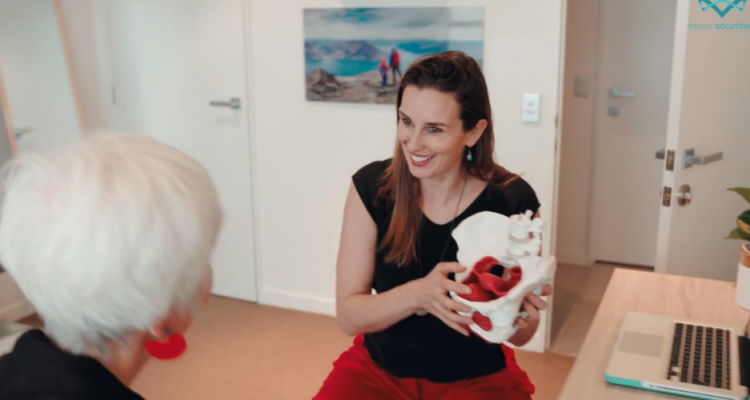Menopausal pelvic assessment
Menopause is the change of life where a woman no longer menstruates and their period stops permanently.
After menopause our sex hormones, oestrogen, progesterone and testosterone, slowly decline to a very low level. These hormones are responsible for maintaining tissue elasticity including vaginal tissue and they cause our lining of the uterus to thicken during the menstrual cycle. These hormones also preserve bone and muscle mass, they maintain vaginal blood flow and lubrication and they contribute to libido.
Some of the common symptoms associated with menopause include hot flushes, night sweats, insomnia, vaginal dryness, bone loss, fatigue, heavy or irregular bleeding, incontinence (bladder and/or bowel), urinary urgency (the need to rush to the toilet to urinate) and urinary frequency
During menopause there are changes in the collagen and elastin within the body’s tissue, in particular it affects the structural and functional integrity of the pelvic floor. The result of thinner connective tissue is stretching and weakening of the fascia and muscles that support the pelvic organs as well as the sphincters that help with bladder and bowel control. This can potentially increase risk of pelvic organ prolapse and bladder and urinary incontinence.
Menopause also affects the vaginal walls and vulva, as less lubrication is produced and vaginal walls are thinner and weaker. It is common for some women to experience sexual pain or discomfort during intercourse after menopause.
Menopause and Libido
During menopause there is a gradual loss of oestrogen and during this time there is also a loss of testosterone, which is the female sex hormone responsible for sexual arousal and desire. Your libido is your sexual instinct and erotic desire. Every woman’s libido is different and it is dependent on a number factors including; hot flushes, vaginal dryness, anti-depressants and stress and anxiety levels.
Menopausal women may find it much harder to respond to touch and sexual contact and find it much harder to become aroused due to the effect of low oestrogen, there is less blood flow to the vagina as well as less lubrication, which makes sexual intercourse less desirable.
How we can help menopausal women:
- Improve sexual desire and intimacy
- How to reduce the effect of bone changes after menopause
- How to keep the pelvic floor strong and healthy beyond menopause
- Pelvic floor safe exercises in menopause



